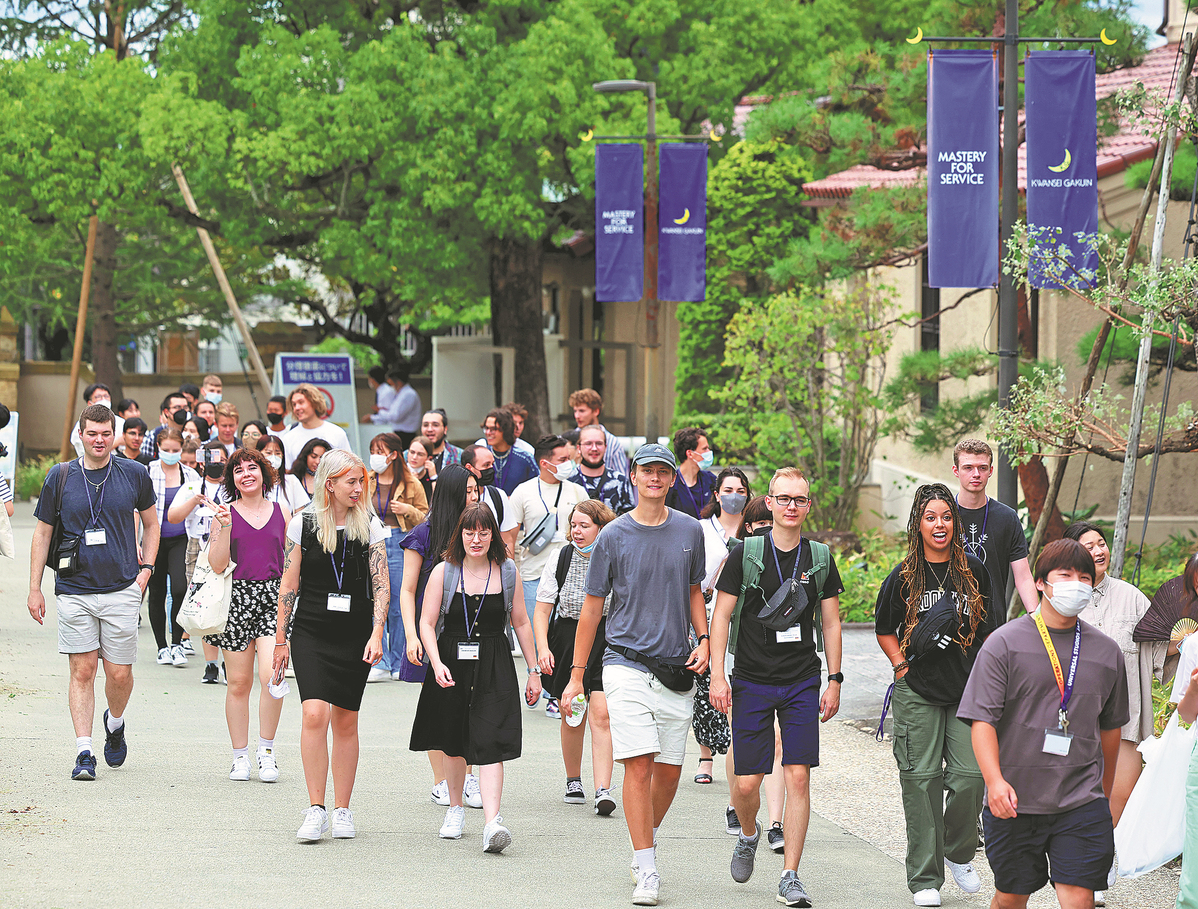Chinese students turning backs on United States


Gun violence, civil unrest influence study decisions
He Yijing, a sophomore student, was sitting in a campus hallway at Zhejiang University of Finance and Economics in Hangzhou, capital of Zhejiang province, on Nov 9, 2021, when she learned that a 24-year-old Chinese graduate student from the University of Chicago had been fatally shot.
Studying English for her upcoming Graduate Record Examination, a standard requirement for entry to graduate schools in the United States, He said she was deeply shocked by the death of Zheng Shaoxiong, who was killed during a robbery near his university campus.
Zheng was studying statistics in Chicago, and He's studies at the time were also related to statistics. "I was so sorry to hear about his death," said He, who later became one of many Chinese international students who changed their plans to study in the US.
Last year, some 290,000 Chinese students were studying in the US, an 8.6 percent decline from the previous year, data from the Institute of International Education, or IIE, show. In contrast, the number of Indian students in the US stood at about 200,000 last year, a 19 percent rise compared with the previous year.
The allure of the American dream appears to be fading for many Chinese students.
In 2015, some 51 percent of Chinese students expressed a desire to study in the US, but by last year, the proportion had fallen to 30 percent, surveys by Chinese education company New Oriental Education& Technology Group show, along with data gathered by The Wall Street Journal.
Increasing gun violence is one of the reasons international students, including those from China, are choosing not to study in the US.
In 2018, an IIE survey found that about 44 percent of international applicants for the 2017-18 academic year said they were primarily concerned about their safety when deciding whether to study in the US. They were particularly worried about gun violence and civil unrest.
"With news of shootings every day, I find it really frightening," said He, who chose to study in Hong Kong, rather than the US.
She added that she knows a former classmate who is an undergraduate studying in the US.Occasionally, warnings from the university appear in the students' email inboxes, informing them about specific areas on campus where bombs have been detected.
Data show that the decline in international student enrollment could affect US universities and the economy.
Due to their international status, these students often pay higher tuition fees, making many US institutions reliant on these revenue streams.
CNN quoted NAFSA, or the Association of International Educators — an international alliance of professional educators — as saying the decline in international student enrollment has resulted in an estimated loss of $11.8 billion to the US economy, along with more than 65,000 jobs.
China has been the top country of origin for international students for more than a decade, with some 31 percent of such students in the US coming from China, the IIE said.
Chinese students have been a major source of revenue for many US universities and colleges, contributing a substantial amount to the US economy.
In 2018 alone, they brought in$14.9 billion, primarily through tuition fees and living expenses, the US Department of Commerce reported.
























